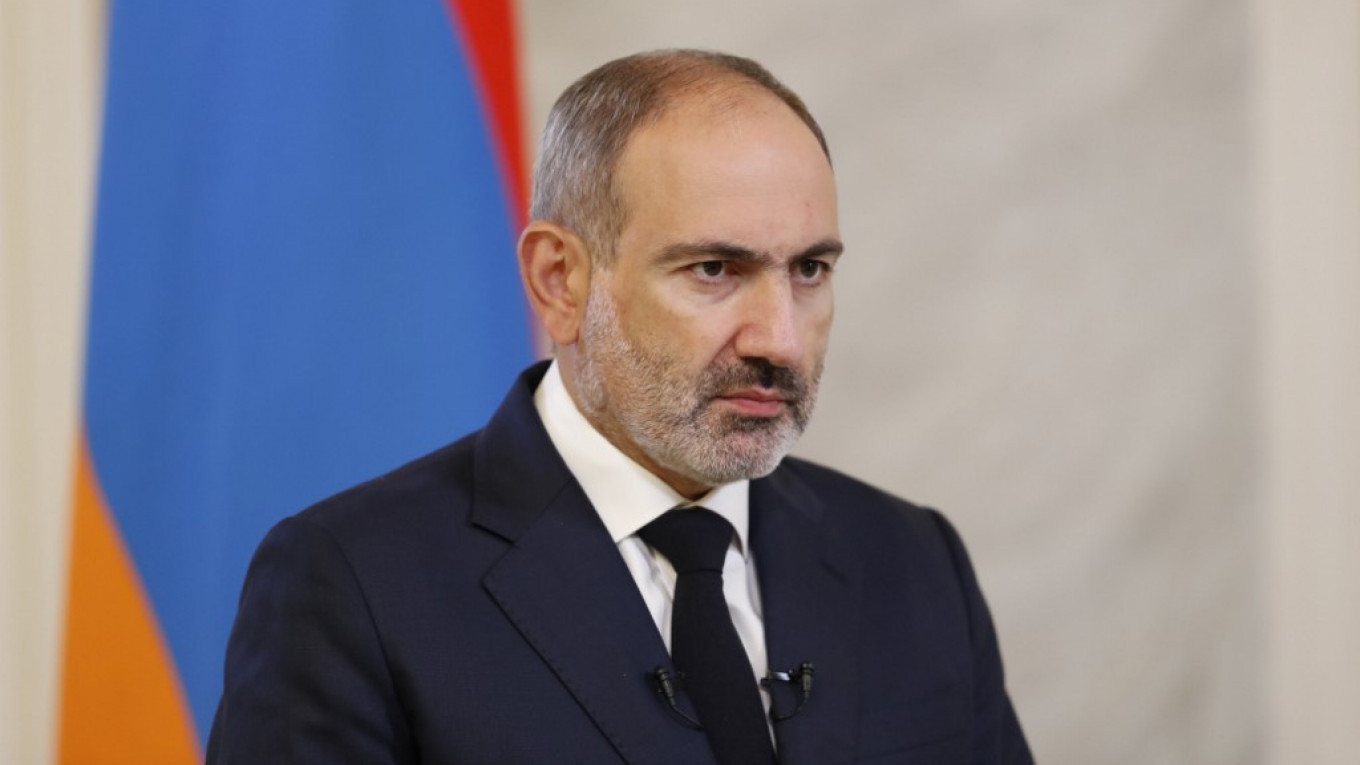
Armenia and Azerbaijan have reached an agreement to end the war in Nagorno-Karabakh with immediate effect.
Armenia’s Prime Minister Nikol Pashinyan first made the announcement on Facebook early Tuesday morning.
Russian President Vladimir Putin confirmed details of the deal, brokered by Moscow, minutes later in a televised statement.
“I have signed a statement on the termination of the Karabakh war along with the Russian and Azerbaijani presidents,” Pashinyan wrote.
The agreement came into effect at 01:00 local time — minutes before the announcements.
The deal provides for “the complete cessation of hostilities in Nagorno-Karabakh,” Putin said.
Both sides will maintain their current territorial positions as part of the deal — meaning Azerbaijan will keep hold of the military gains it has achieved since the start of the conflict — and Armenia will return other occupied territories which it currently controls in phases over the next month.
That effectively means the return to Azerbaijani control of seven districts surrounding the core Nagorno-Karabakh region which Armenia seized during the 1988-94 conflict, as well as the culturally-important city of Shusha, which Azerbaijani forces seized in recent days of the conflict.
Meanwhile, Armenia will retain control over most of Nagorno-Karabakh itself, the de facto state administered by Armenian-backed separatists and referred to as Artsakh in Armenia, but located within Azerbaijan’s international borders. Azeri refugees and internally displaced persons (IDPs) from the 1988-94 war — hundreds of thousands of which live in Azerbaijan — will be permitted to return to Nagorno-Karabakh, Azerbaijani President Ilham Aliyev said.
A 2,000-strong Russian peacekeeping force will be deployed for a minimum of five years to protect the land corridor between Armenia and the Nagorno-Karabakh region. Azerbaijan will also gain passage to its Nakhchivan exclave which is detached from Azerbaijan by a strip of Armenian land close to the border with Turkey and Iran. Russian forces will guarantee the roads connecting Azerbaijan and Nakhchivan.
Putin said he expects the agreement “will create the conditions for a long-term settlement.”
Aliyev celebrated victory in a television address Tuesday morning, local journalists reported. “Pashinyan is not signing the agreement because he wants to, but because we forced him to,” reporter Cavid Aga cited Aliyev as saying.
The peace deal comes after Azerbaijan captured the key town of Shusha, the second largest in the region, after weeks of military victories for Baku and bloody fighting that has killed thousands of fighters and dozens of civilians. The conflict has also seen cities and villages destroyed by missile strikes and accusations of attacks on residential settlements that the United Nations warned could amount to “war crimes.”
In a frantic day of fighting Monday, Azerbaijan also accidentally downed a Russian military helicopter, killing two Russian service personnel and injuring a third.
Pashinyan has come in for harsh criticism at home for military losses, with 17 Armenian opposition parties calling for his resignation Monday.
Angry protests in Yerevan erupted in reaction to Pashinyan’s announcement. Armenian protesters stormed the government headquarters in Yerevan, an AFP journalist said. Several thousand protesters had gathered outside the government building and a few hundred entered, ransacking offices and breaking windows, after Pashinyan announced the deal with Azerbaijan and Russia.
He said signing the deal was “unbelievably painful for me and our people,” but took the “decision as a result of a deep analysis of the military situation.”
Three previous ceasefire agreements have broken down within minutes of being signed.
Aliyev has repeatedly said Armenia’s withdrawal from seven districts around Nagorno-Karabakh which were occupied by Armenian forces would be a precondition to peace and negotiations over the future status of the breakaway region — internationally recognized as part of Azerbaijan, but under de facto control of Armenia-backed separatists.
Two former Soviet republics, Armenia and Azerbaijan have been bitter rivals for more than thirty years. War first flared up over the region in the late 1980s and early 1990s, as the fall of the Soviet Union thrust Nagorno-Karabakh into a precarious position — home to a majority Armenian population but with a notable Azeri minority and within Azerbaijan’s new international borders. The 1988-94 war left around 25,000 dead and there were numerous reports of war crimes and the killing of civilians by both sides.
Numerous peace initiatives over the past decades failed to normalize relations between Yerevan and Baku despite various international agreements and proposals being put forward. There have also been frequent military skirmishes along the heavily-militarized front line. The most recent conflict started at the end of September with Azerbaijani advances into territory held by Armenia and has seen Baku make sweeping gains thanks to its more advanced military equipment, analysts say.
AFP contributed reporting.

Leave a Reply